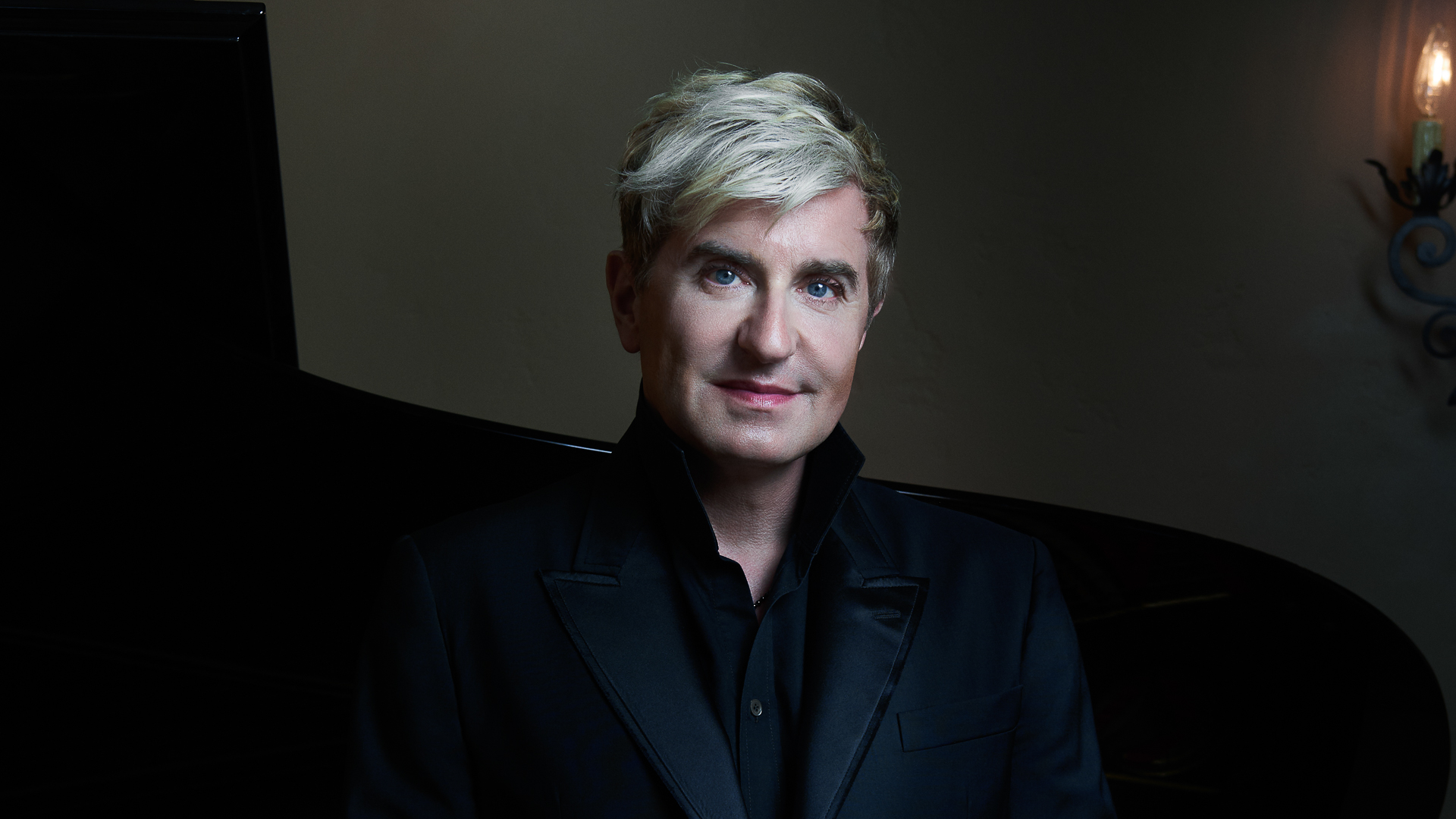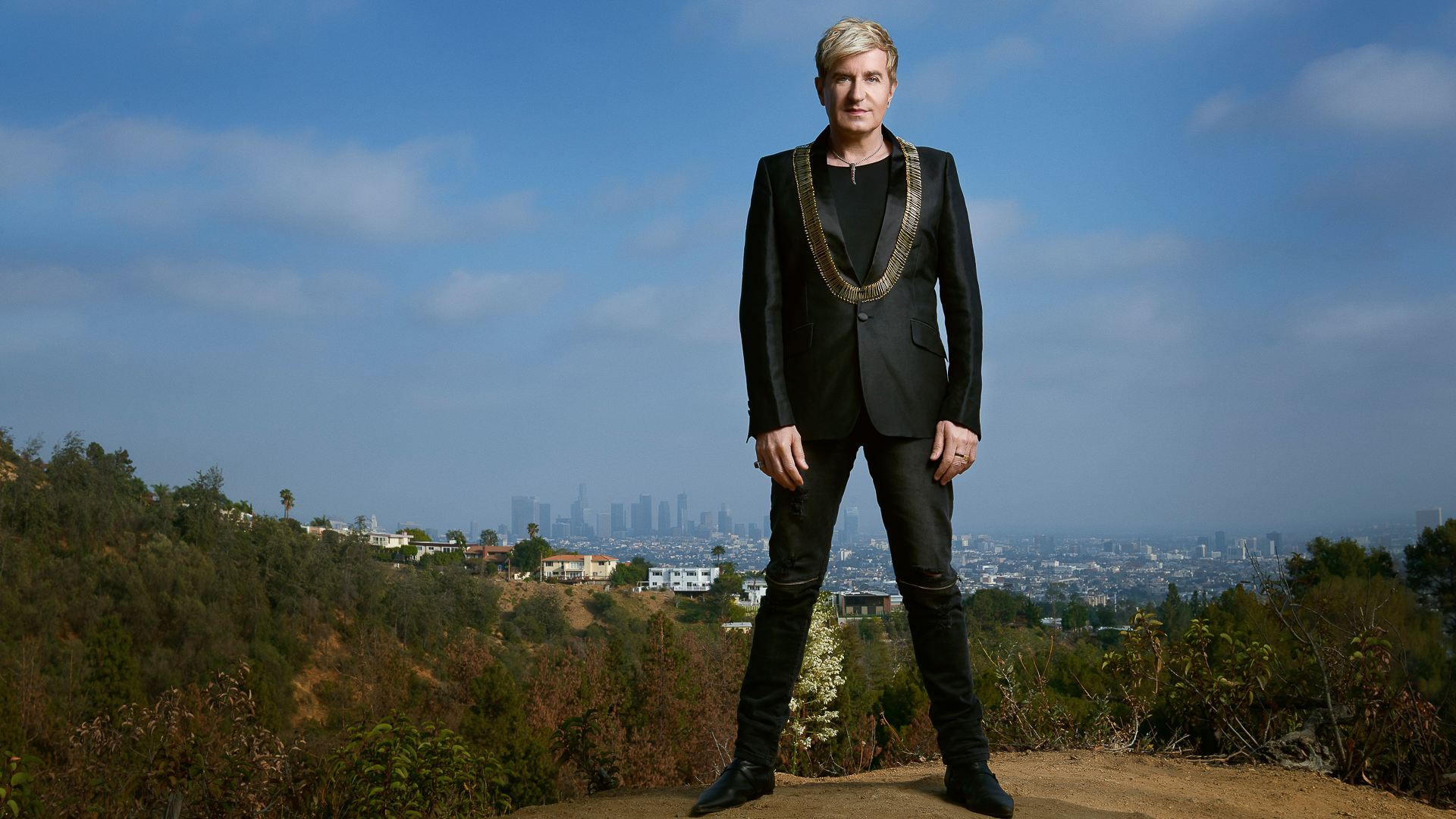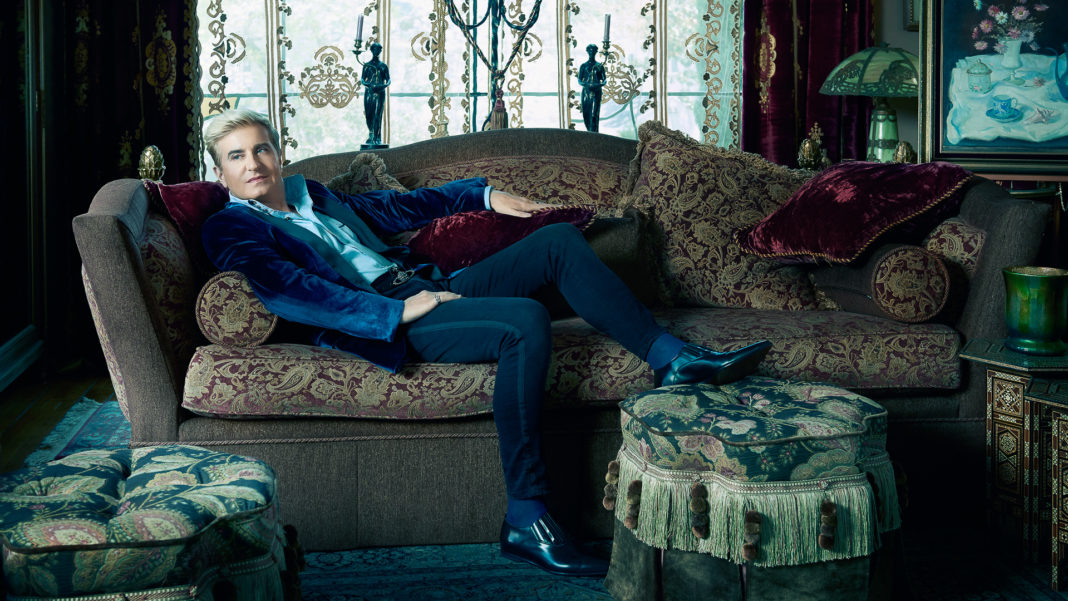Having just finished rehearsing George Gershwin’s Concerto in F with the LA Philharmonic yesterday morning, pianist Jean-Yves Thibaudet sounded positively giddy when we spoke by phone.
“The one thing that will not change is the utter joy [the concerto] gives the listeners, the performers; just look at the orchestra, there’s not one person who doesn’t smile. It’s really a piece that’s part of my DNA. There’s rarely a season where I don’t play it. I never get tired of it.”

Thibaudet is a highly-acclaimed and sought-after pianist. He recently performed with the LA Philharmonic at the Hollywood Bowl and makes regular appearances with the orchestra at the Walt Disney Concert Hall. He’s recorded over 50 albums and performs around the world.
I reminded Thibaudet that there was one person who didn’t appear to be smiling and that was Gershwin’s go-to soloist Oscar Levant, who performs the most interesting excerpt of the Concerto in F in An American in Paris.
“Maybe he was told not to look too happy in An American in Paris. He played it so beautifully. For me it is impossible. How can you not have fun with this piece?”
Last year Will Friedwall of the Wall Street Journal, in a review of a box set of Levant’s recordings, called Levant’s performance “definitive.” Thibaudet doesn’t feel that anything can remain definitive for too long.
“What a great artists is, when you listen to that artist you think, ‘that is a definitive performance.’ The character, the personality and it just works. At that moment you say that’s the only way to play it. You can have a great artist who plays it differently who is convincing. And that is definitive. In art and music there is nothing definitive. We don’t know what it is. Even a composer wouldn’t know. The most amazing result for an artist is to give the impression that there’s just no other way to play the piece. I think that’s what Oscar was doing. We all play differently. Thank God, if we were all trying to copy someone, how dull would that be?”
Thibaudet’s relationship with Gershwin’s Concerto in F and Rhapsody in Blue began when he was just 14. But his relationship with the piece has changed radically since then.
“When I played it the first time, I didn’t know what jazz was. I was not familiar with that. I treated that piece like a Chopin concerto. I probably played it straight. What did I know? The biggest revelation over the years is that injection of the jazz element. Then you play it very differently in life.”
Like many popular pieces in the repertoire, there is usually one edition of the score that is used by orchestras and soloists. When the Gershwin Initiative at the University of Michigan published a new critical edition of the concerto two years ago, Thibaudet was thrilled.
“I think critical editions in anything are great. We have that problem with Ravel and Debussy where there were a lot of mistakes and things that weren’t corrected. By word of mouth or notes, we have a lot of those things, but they don’t make it to the score. I think it’s fantastic someone takes the time to dig into it. It’s a tremendous amount of work. ”
As excited as he might be, don’t ask him to give up his original score anytime soon.
“I still have my old edition and my old score that I’m attached to. I have a set of two scores in my apartments. [One in Paris and one in the United States.] It is pretty old and falling apart and I have all the corrections in it. Whenever there is something new, I’ll write it in my old score.”
Taking notes as his teachers probably instructed him to do. Or as he instructs his students to do. For almost six years he has served as an Artist-in-Residence at the Colburn School in downtown Los Angeles.

“I think teaching is one of the most remarkable and rewarding experiences and you don’t know it until you do it. I’ve done master classes most of my life, but teaching on a regular basis and the time I’ve done it is just fantastic. Students ask questions you don’t ask yourself. I was so lucky I got so much from my wonderful teachers. I need to share what I learned from them and pass that to the next generation. It’s very important I can share my enthusiasm and experience.”
Still he’s happy and smiling (as much as I can tell over the phone.) So I asked him about Oscar Levant’s view of happiness when he said, “Happiness isn’t something you experience, it’s something you remember.”
Before answering he laughed.
“I would think of that amazing phrase from Nietzsche which says, and I’m paraphrasing that the waiting for the pleasure is more intense than the pleasure itself. That’s terribly translated. If that’s what he meant, there’s a little of that. You dream as a kid before you go to bed something you’d love to have. It’s unbelievable that excitement. One day you get it, but you don’t have the dream anymore. Is it more important to have the dream or to get it? I think we need both. The pleasure and the happiness are wonderful. I do think you feel it when you leave a happy moment. I think you should really enjoy every second. That’s what we live for. I personally enjoy both.”
Thibaudet will be performing with the Los Angeles Philharmonic beginning tonight and continuing through October 6th.
Photos of Thibaudet by Andrew Eccles/Courtesy of Harrison Parrott UK










